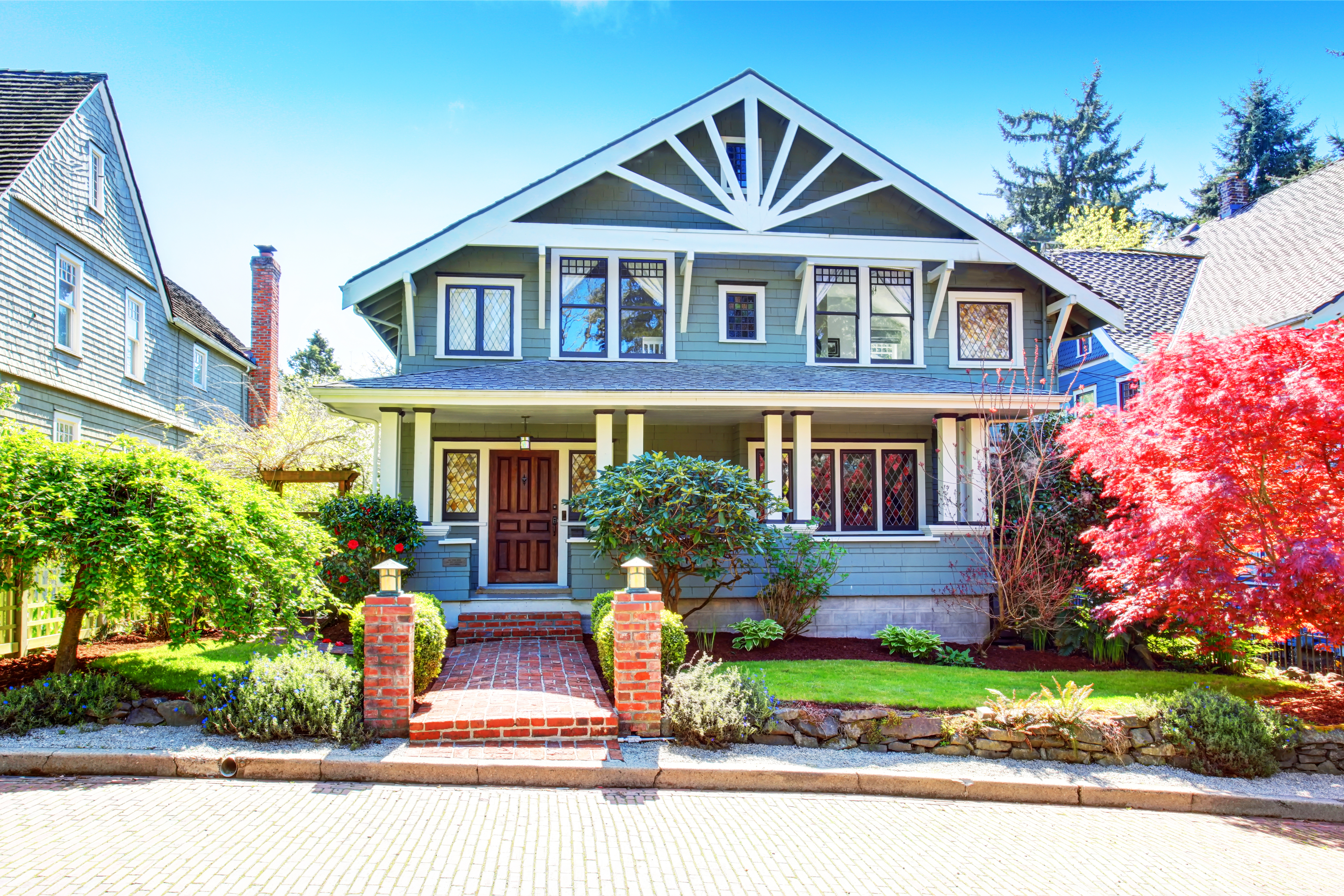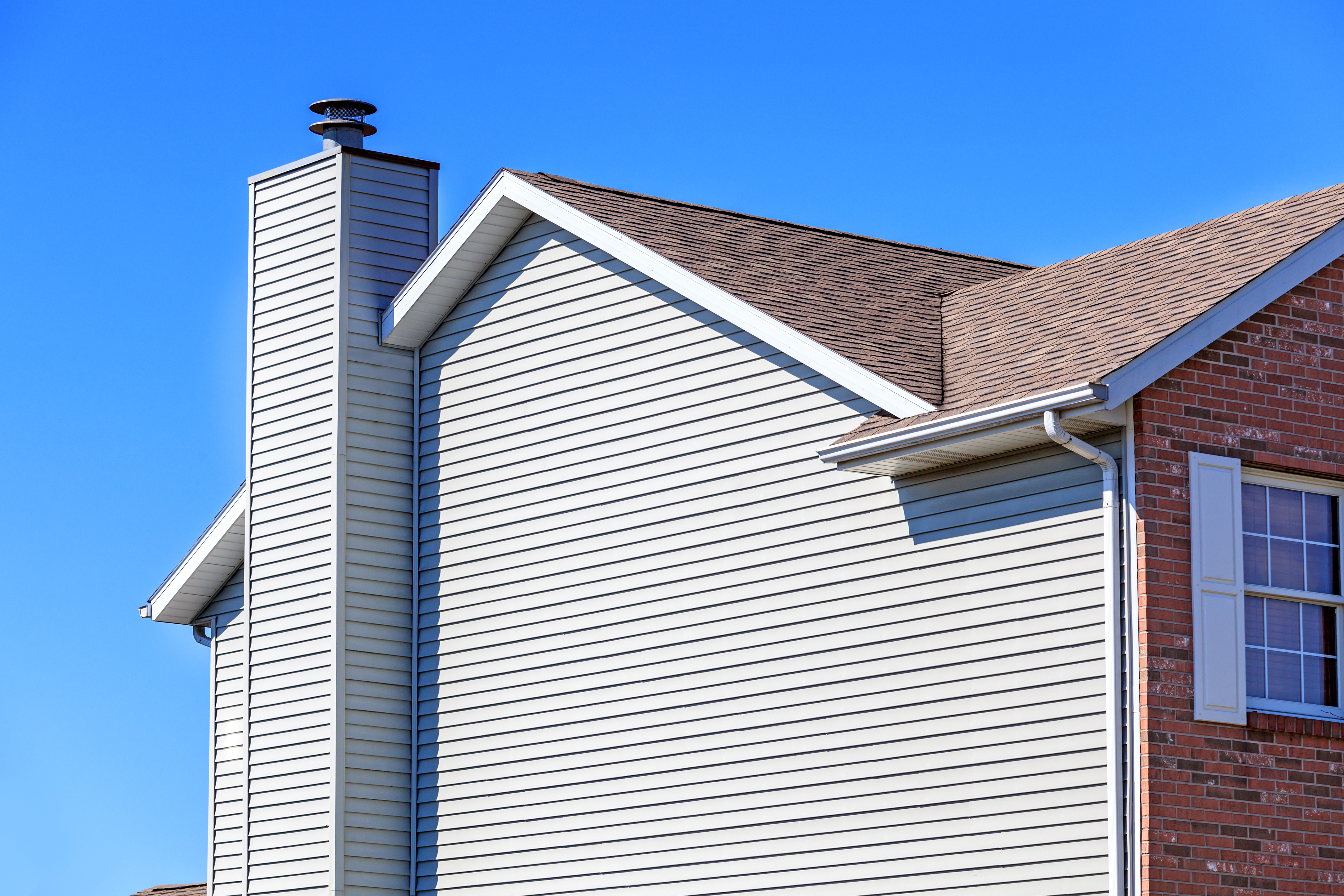
The cost of siding repair varies depending on material, design, and damage. This helpful guide covers the siding repair costs to expect in Columbus, Ohio.
Vinyl siding installation in Charlotte costs $12,513 on average, with most local homeowners paying between $3,157 and $22,720. A local siding pro will provide a custom quote based on the vinyl siding style you choose.


Vinyl siding installation in Charlotte is less expensive compared to the rest of the country.
There's a range in pricing based on the style and size of your home.
Vinyl is more cost-effective than engineered wood or fiber cement.
Both state and county sales tax will apply to siding materials used for new siding installation in Charlotte.
With a cost of living that's in line with most of the country, Charlotte's vinyl siding installation costs can be considered middling to low. The average vinyl siding installation cost in Charlotte is $12,513. However, the project can actually cost from as low as $3,157 to as high as $22,720 based on the specifics of your home and the quality of the siding you select. A local siding pro will provide a custom quote based on your selection. Keep reading for a closer look at factors that impact this project's cost.
In general, costs for new vinyl siding in Charlotte are split between the price of materials and a contractor's labor rate. Most contractors in Charlotte charge between $2 and $9 per square foot for materials with installation included. With the average home size in Charlotte at around 1,800 square feet, that often looks like $3,600 to $16,200 for new siding on an average-sized home for the area.
| Size by Square Foot | Average Price |
|---|---|
| 1,200 | $2,400–$10,800 |
| 1,500 | $3,000–$13,500 |
| 1,800 | $3,600–$16,200 |
| 2,000 | $4,000–$18,000 |
| 2,300 | $4,600–$20,700 |
| 2,500 | $5,000–$22,500 |
| 3,000 | $6,000–$27,000 |
With so many different types of vinyl siding to choose from, homeowners can decide if they want to be at the top or bottom of the price spectrum. While all vinyl siding is prized for its durability and protection against water intrusion and rot, some options offer added durability or enhanced aesthetic appeal.
| Siding Type | Price per Square Foot | Pros | Cons |
|---|---|---|---|
| Vinyl board | $2–$3 | Easy to install and maintain | Prone to fading and warping in high heat |
| Vinyl scallop | $7–$9 | High-end aesthetic | Design can trap debris |
| Insulated vinyl | $7–$9 | Energy-efficient | Higher installation cost |
| Vinyl clapboard | $7–$8 | Clean, timeless look | Requires skilled installation |
| Vertical vinyl | $6–$7 | Extra protection against rainwater | Costlier installation |
| Vinyl shake | $6–$9 | Architectural look | Difficult installation |
| Vinyl Dutch lap | $4–$6 | Extra insulation and protection | Harder to clean |
When replacing siding in Charlotte, the cost to hire someone who knows how to remove vinyl siding is between $0.85 and $2 per square foot. If you need to remove existing wood, brick, or stucco siding, the cost can be closer to $2 to $4.50 per square foot to account for the extra time and effort. In general, siding removal costs include disposal. For existing siding that contains asbestos, the cost for removal can reach $5 to $7 per square foot because special certifications and extra care are required.
In Charlotte, homeowners generally don't need permits for siding projects under $15,000. If the cost of adding new siding either exceeds $15,000 or involves some degree of structural change, a permit that equals anywhere from $57 to a percentage of the total project may be required based on the scope of the work.
Additionally, any contracted work totaling $40,000 or more must be performed by a contractor licensed and insured through the North Carolina Licensing Board for General Contractors (NCLBGC). A North Carolina licensing fee totaling between $100 and $25 on average, monthly contractor insurance rates ranging from $110 to $174 on average, and other local costs of doing business are reflected in Charlotte contractor rates. In addition, all siding materials purchased for a project are subject to a 4.75% North Carolina state sales tax and 2% Mecklenburg County sales tax for a combined sales tax total of 6.75%.
With average rain totals topping 43 inches per year and a climate serving hot, humid summers, Charlotte requires intact, well-maintained siding to keep a home protected against water intrusion, mold, and rot risks. In addition to refreshing a home's curb appeal, new vinyl siding in Charlotte adds value for buyers seeking to avoid major home repairs. A local Charlotte vinyl siding contractor near you can offer options that increase a home's appeal.
Home is the most important place on earth, which is why Angi has helped more than 150 million homeowners transform their houses into homes they adore. To help homeowners with their next project, Angi provides readers with the most accurate cost data and upholds strict editorial standards. We survey real Angi customers about their project costs to develop the pricing data you see, so you can make the best decisions for you and your home. We pair this data with research from reputable sources, including the U.S. Bureau of Labor Statistics, academic journals, market studies, and interviews with industry experts—all to ensure our prices reflect real-world projects.
Want to help us improve our cost data? Send us a recent project quote to [email protected]. Quotes and personal information will not be shared publicly.
From average costs to expert advice, get all the answers you need to get your job done.

The cost of siding repair varies depending on material, design, and damage. This helpful guide covers the siding repair costs to expect in Columbus, Ohio.

Fiber cement siding is durable, fire-resistant, and affordable. Learn more about fiber cement installation costs in Columbus, OH.

In addition to protecting against extreme Midwest temperatures, new siding in Columbus adds curb appeal. Learn about siding replacement cost in Columbus.

Not sure you want to go with the standard siding material for your home? Learn about vinyl siding pros and cons to see if there’s a better option.

Exterior Insulation and Finish Systems, or EIFS, is a stucco look-a-like but is actually very different. It can be hard to clean and expensive to install, but EIFS is a durable, energy-efficient, and attractive option to spruce up any home.

Power washers can effectively clean dirt and grime on siding, but there’s a risk of damage. So, can a power wash break siding? Find out more.